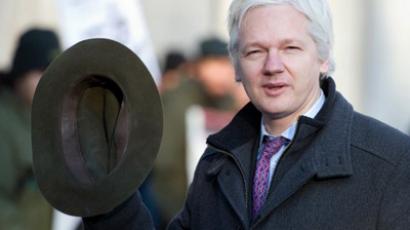Judges play language game to extradite Assange
The decision to extradite WikiLeaks founder Julian Assange has caused outcry, with critics saying it is based on dubious legal credentials. In the ruling EU law overrides UK jurisdiction, the final judgment dictated by the meaning of a French word.
The ruling has been dubbed as “extraordinary” by Gerard Batten of the UK Independence Party.He said that the judgment overruled a “centuries-old principle of English law” that states that “you cannot be a judge in your own case.”According to UK legislation, the extradition order placed against Assange was invalid because the Swedish prosecutor who issued it acted beyond his jurisdiction. Batten's view was echoed by Supreme Judge Lady Hale, who says the term "judicial authority" is restricted to court, tribunal, judge or magistrate only.In Assange’s hearing the judges cited that the Venice Convention in which a judicial authority under the broader French definition of the word also encompassed prosecutors.“Although our own parliament and our own government minister believe a judicial authority means a proper court or a proper judge. That was overturned and it was decided that the meaning of the word in French was actually what mattered,” Batten told RT. He added that “it means that now English law has been decided on the meaning of a French word.”Julian Assange lost his marathon legal battle against his extradition to Sweden this morning in the UK Supreme Court. However, the judge granted his team of lawyers two weeks to make an application to reopen the case.Supreme Court President Nicholas Phillips accepted that the case had “not been simple to resolve.” Two members of the court voted against the ruling but were overruled by the five other jury members. They took issue with imposing the French definition of the act on Assange’s case.Assange’s lawyer Dinah Rose argued that the decision was taken based on legal points that were not argued in the original appeal, and as such the defense had not had time to address them.The founder of WikiLeaks may also make an appeal to the European Court of Human Rights in order to delay his extradition to Sweden.














